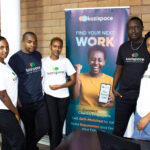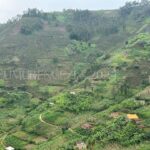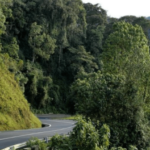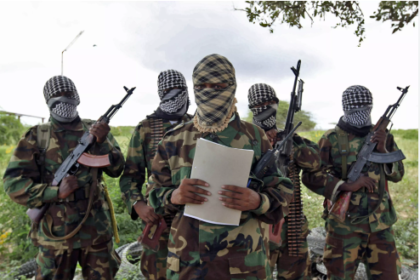As the world marks this year’s breast cancer awareness month, 47-year-old Rwandan mother Francine Uwumukiza recalls the nightmares she went through when she was diagnosed with breast cancer.
Despite regular exercises and eating a balanced diet and green vegetables, the mother of three never thought it could happen to her.
“It was not something I imagined, not even in my dreams that I could be a victim,” said the resident in Nyarugenge district, on the outskirts of Rwanda’s capital, Kigali.
She was diagnosed with breast cancer in 2016, but luckily, she has recovered and encourages women to take prevention seriously.
- Advertisement -
Awareness campaigns on breast cancer are running throughout October in Rwanda, featuring awareness walks and screening women and girls for breast cancer using breast clinical examination.
In 2020, at least 2.3 million women worldwide were diagnosed with breast cancer and 685,000 died from the disease, according to the World Health Organization (WHO).
Four women are diagnosed with breast cancer every minute, and it is projected that the number of breast cancer cases will double over the next 20 years in less developed countries, the WHO says.
In Rwanda, at least 650 patients were diagnosed with breast cancer in 2020, the majority of whom succumbed to the disease due to late diagnosis, according to the Ministry of Health.
Breast cancer remains the most common among cases recorded in the east African country, followed by cervical, prostate, stomach and liver cancers.
Talking about her experience, Uwumukiza recalled that it was during a self-check routine when she felt a lump. She underwent a breast clinical examination which confirmed it was cancer.
“I couldn’t believe, and wondered why it had happened to me,” she said.
Uwumukiza started her chemotherapy at a hospital in neighboring Kenya’s capital Nairobi as her family had the financial means.
The therapy succeeded and she had surgery to remove the area where the lump was found. She later underwent radiotherapy.
“I think this was one of the most difficult moments in my life because of the excruciating pain,” she said. “As a survivor, I feel proud because I had a second chance to be still alive today.”
Early detection through periodic breast self-examination gives patients the best chance of survival, Daniel Ngamije, Rwanda’s Health Minister said during a recent awareness campaign in Kigali.
“Common symptoms can easily be detected such as a lump in the breast or armpit, swelling of part of the breast, irritation or dimpling of breast skin, pulling in of the nipple,” he said.
Other symptoms include nipple discharge, including blood, pain in the breast, or redness around the nipple.
Now Uwumukiza’s goal is to spread awareness among young women in Rwanda, in particular about the importance of check-ups.
She said other than targeting older women for awareness most times, young women need awareness too. “We need to teach younger women how to care about their bodies and open up to their parents or doctor when they feel anything strange,” she said.
Uwumukiza believes while high cost and lack of developed treatment infrastructure in developing countries is a challenge, ignorance and lack of awareness are the real killers of people. Delays in screening, diagnosis, and treatment due to a lack of awareness are a challenge, she said.
Health officials say 80 percent of breast lumps are not cancerous but there is still a 20 percent chance. Women are encouraged to have mammograms before the age of 40.
Other Rwandan breast cancer survivors Jackline Musoni and Charlotte Uwimana said the earlier one finds out, the higher the chances of getting cured. “Not checking and ignoring symptoms is deadly.”
“With early detection, breast cancer heals with strict adherence to health advice,” said Musoni.
Noting that men can also suffer from breast cancer, Minister Ngamije said Rwanda now has a full capacity of treating breast cancer patients once detected early.









